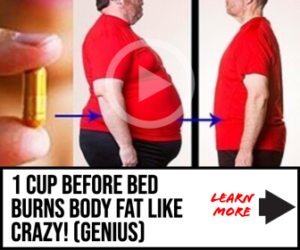You think you’re eating healthy, but aren’t.
Does your diet consist of a massive amount of “products”? Low-carb or not, you want to eat real food. Flagons of diet soda, plates of pure fiber in the shape of noodles, and loaves of 1g net carb “bread” do not a Primal eating plan make. You’re just feeding an addiction and consuming empty calories – sound familiar? Disregard the labels and look inside for what you know to be true: this isn’t food, and you should not be eating it. It’s about way more than just low-carb.
You’re under too much stress.
The stress response system is subconscious; it responds to stimuli and nothing else. Emotional stress, physical stress, financial stress, relationship stress – I hesitate to even make these distinctions, because the body does not differentiate between sources of stress. They all cause the body to produce cortisol, the fight-or-flight hormone that catabolizes muscle, worsens insulin resistance, and promotes the storage of fat.
You’re not active enough.
Are you Moving Frequently at a Slow Pace for three to five hours every week? Remember: the near-daily low-level (between 55-75% max heart rate) movement should be the bedrock of your fitness regimen. It’s easy to do (because every bit of movement counts) and it doesn’t dip into your glycogen reserves (making it a pure fat burner, not a sugar burner). If you’re on the low end of the spectrum, crank it up toward five weekly hours and beyond.
You’re not getting enough sleep.
Chronic levels of sleep deprivation cause the release of cortisol, our old fat-storing friend. The biggest spike in (fat-burning, anabolic) growth hormone plasma levels occurs in deep sleep. And a recent sleep study showed that truncated sleep patterns are linked to weight gain. Get seven to eight hours of sleep a night.
You’re Not Eating Enough Fiber
Fiber aids digestive health and helps to create a sense of fullness, which makes consuming fewer calories easier. It’s estimated that only 5% of Americans get enough fiber. Why are people missing out? Most of us assume we’re getting enough from grain-based products like bread and cereal, but the reality is these highly-processed foods have been stripped of their nutrients and fiber. Instead, eat more fruit and vegetables, and opt for whole grains, like brown rice and steal-cut oatmeal.
You Don’t Drink Enough Water
We’ve all heard how important H2O is when it comes to shedding pounds. It helps to suppress appetite, so you’re less likely to overeat. But that’s not all: When you’re dehydrated, your kidneys can’t function properly, so the body turns to the liver for additional support. Because the liver is working so hard, more of the fat you consume is stored rather than burned off.
You’re Eating Too Much Dairy Cheese
Another low-carb food that can cause problems for some people is dairy. Some dairy products, despite being low in carbs, are still pretty high in protein. Protein, like carbs, can raise insulin levels, which drives energy into storage. The amino acid composition in dairy protein makes it very potent at spiking insulin. In fact, dairy proteins can spike insulin as much as white bread (6, 7).
Even though you may seem to tolerate dairy products just fine, eating them often and spiking insulin can be detrimental to the metabolic adaptation that needs to take place in order to reap the full benefits of low-carb diets. In this case, avoid milk, cut back on the cheese, yogurt and cream. Butter is fine as it is very low in protein and lactose and therefore won’t spike insulin.
You’re Eating Too Many Sweeteners
Despite some sweeteners having no calories, they can affect our appetite levels. Several studies show that artificial sweeteners can affect appetite, either negatively or positively, in some cases making people eat more overall calories. Additionally, consumption of artificial sweeteners is associated with weight gain in the long term. This probably depends on the individual, but if you’re eating a lot of sweeteners and aren’t losing weight then you may want to try removing them.
You Have a Medical Condition Getting in Your Way
There are certain medications that are known to stimulate weight gain. If you look at the list of side effects for the medications you are taking and see “weight gain” on the list – then make an appointment with your doctor. Perhaps there is another drug available that doesn’t cause weight gain. If you’re doing everything right and still aren’t getting results, then perhaps you have some underlying medical problem. Many hormonal disorders can cause problems losing weight, particularly hypothyroidism. In that case, make an appointment with your doctor. Explain that you’re having problems losing weight and that you want to rule out any medical issues.
You Need Probiotics (No Sugar) Click Video
Probiotics are live bacteria and yeasts that are good for your health, especially your digestive system. We usually think of bacteria as something that causes diseases. But your body is full of bacteria, both good and bad. Probiotics are often called “good” or “helpful” bacteria because they help keep your gut healthy.
10 Reasons Why You Are Not Losing Weight





